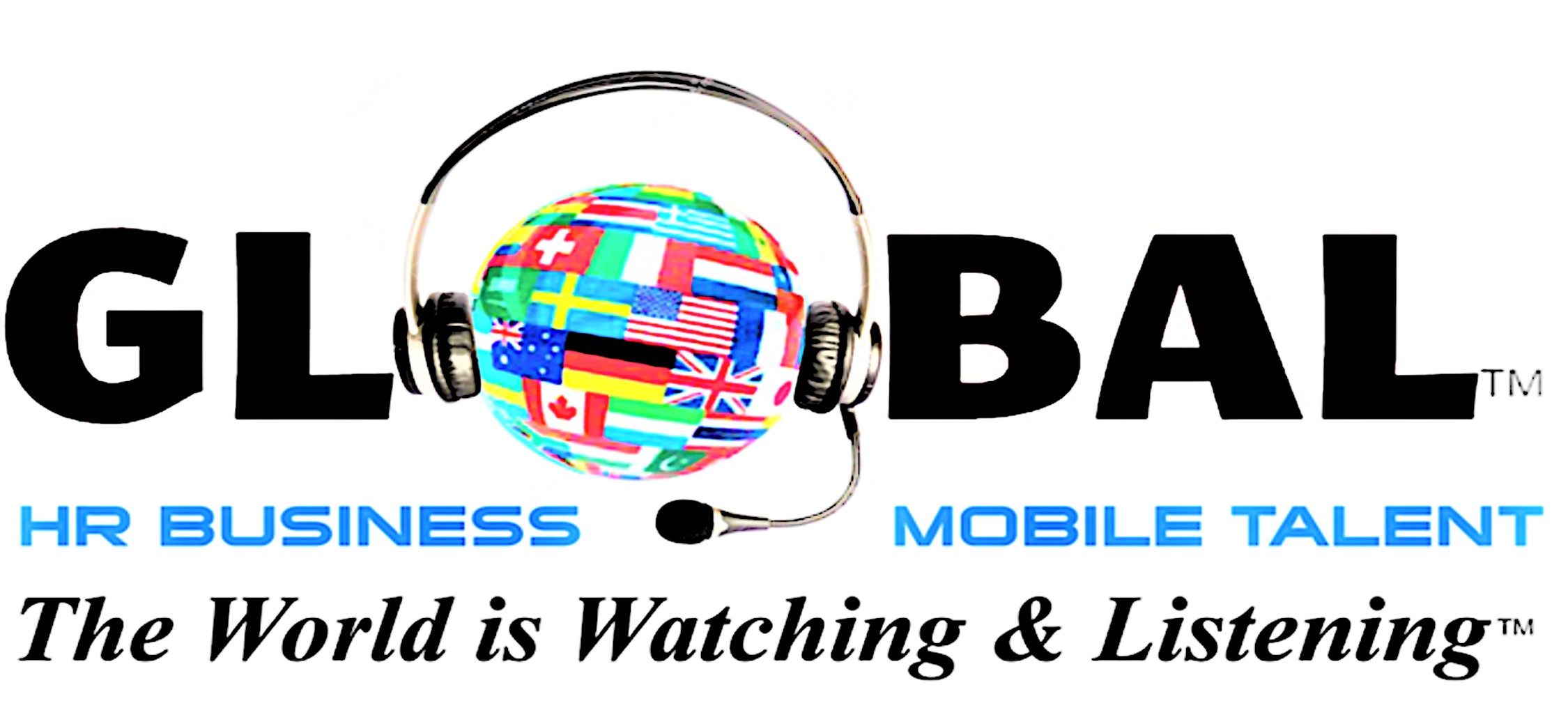10 Commandments of today’s Global Mobility
…send your comments to Angie W in Zurich and or to me in California publisher@globalbusiness.media
 and
and

present the
Photo by Luna Darrous
We have been living in a world dominated by political, economic, and environmental uncertainty for many years now.
However, the past three years have been particularly exceptional and tough for most of us.
The global health crisis caused by Covid-19 has brought the entire planet to its knees. The pandemic impacted all aspects of life and radically changed the way we work. The world of Global Mobility has not been spared.
Considering the extent of the impact caused by the pandemic, it doesn’t take a fortune teller to foresee that Global Mobility Managers will have to deal with the blow of the crisis in the years to come.
If you thought that one global crisis was enough you were up for a shock in February of this year when Russia invaded Ukraine.
Geopolitical tension seems more pervasive than ever, insecurity around energy, food supplies, inflation and other dystopian scenarios cause a lot of anxiety and mental health issues.
The Global Mobility Manager of 2022 is a crisis manager.
All “crisis” cycles show that Global Mobility Managers continue to be incredibly resilient and are constantly coming up with immediate and particularly creative solutions to face issues that arise overnight.
Imagine the difficulty of having to suddenly repatriate an expat (or an expat family) who was temporarily on holiday in a third country and remains stuck there without any other assistance.
Or the complexity of finding a quick solution for someone who was about to go on assignment but suddenly had to postpone their departure, despite all their household goods having already been shipped to the host location.
Teams in warzones continuing to work or being relocated to a safe haven, refugees being integrated into the workforce and business travelers
Having handled many crises in the past, guarding the life of expat families has become our daily bread. This is how we continue to bring the human touch back into Global Mobility.
As I already mentioned in my book in 2019 it is more important for all of us to keep our sanity. It’s more important than ever that we put on our own oxygen masks and work on our inner strength.
Let’s continue to build up our support gang and raise the next generation of Global Mobility Managers through an excellent education with the Global Mobility Master Course at the Erasmus University in Rotterdam.
I’m also in favor of a mentor system where experienced Global Mobility Jedis foster and guide a Padawan. (Yes, I draw a lot of inspiration from movies, books and music.)
When you need guidance we all have our favorite book and I turned to my religion for advice and found an astonishing guideline for the winter to come.
1) I am the EXPAT, your client:
You shall not have strange people before me.
Our expat population is changing. Nowadays, an ever more diverse population is embarking on international assignments. Expats are more diverse in cultural background, family situation, age, gender, etc. It is impossible to address all the needs of these various groups in a one-size-fits-all policy. A more diverse workforce equals a larger variety of individual assignees’ expectations, with the result that a proposition might be very attractive for one employee while not being appealing at all for another. The Expat is our main client, we need to take care of their interests before we consider other parties in the process. In case of doubt focus on people over processes (see also: Agile Manifesto).
The 2018 How Global Mobility is Responding to New Dilemmas Survey shows how expectations from millennial generation employees are impacting mobility programs for 43% of surveyed companies, while the aging workforce has 36% of companies re-evaluating their program policies.
In the AIRINC Mobility Outlook Survey 2021, 65% of respondents expect that the demand for flexibility from the business will increase. Meanwhile, 52% of the companies surveyed expect that adding in more flexibility to policies is the best response to this demand, followed by 28% who think using a wider variety of policy types is the better solution.
According to the Mercer 2019 Flexible Mobility Policies Survey, the most popular policy elements for which the participants introduced flexibility are family-related: housing, spousal support, child education, and home leave tickets are all items that can help improve the Expat Experience while on assignment.
2) You shall not take the name of the POLICY, your bible in vain
There are reasons for quoting the policy, the law or other regulatory insights. However, this should not be your go-to-wording for anything that “is not possible”. With the crisis, the importance of duty of care over excessive flexibility was acknowledged: policies should not be made flexible if they are essential for the wellbeing of employees. Flexible policies have prepared some companies to deal more efficiently with urgent repatriations and unforeseen mobility scenarios. Other companies adopting flexible policies have found them inapplicable and inappropriate in the context of urgency. In my view we will be moving away from policies altogether and design individual packages for the Expat that fits like a bespoke, handmade business suit.
We mentioned last year that immigration gets harder and it could be that the host country legislation has not kept up with modern family constructs for example. Communication about what is possible and how it can be done is key here. Communicate openly about longer lead times, backlogs at authorities (for example post-BREXIT, the UK immigration process currently takes a lot longer than what we were used to).
3) Remember to keep holy the DIGITAL DETOX DAY
Try to keep a “digital detox day” because your work never ends. We have always been challenged by working across time zones, holiday schedules and constant demands. For your sanity and energy maintenance it is therefore important to get away from all media for 24 hours at least. I’ve been working on this practice for a while already but observed also with my coaching clients that the pandemic has blurred the lines between work and personal time even further. You could argue that we’ve been practiced at this challenge for a longer time than most of our colleagues in HR.
Many organizations have focused on digitization (moving to more digital formats) and digitalization (strategically shifting to digital processes and activities). One of the biggest challenges is to incorporate technology to the business in a way that it adds value to the company and its employees. One positive example of digitalization is reporting assignees through an intuitive HR system and tracking assignees through security apps such the International SOS Assistance App.
Companies’ level of ‘digital engagement’ depends on how “digitally mature” their global mobility programs already are. Some might be just ‘exploring digital,’ using robotics to carry out simple and repetitive tasks, while others might be already ‘becoming digital’ with a formal digital strategy set in place.
You are already experiencing success where automation is implemented to perform tasks that humans would generally be assigned, such as routine emails or copying and pasting information from public or private sources.
By adopting and introducing those techniques into existing processes, you will focus on diminishing costs, increasing productivity by improving operational efficiency, and retaining talent. Some of the latest HR systems like Success Factors or Workday offer basic workflow functions for international assignments but cannot yet run the full process with all the external vendors involved. Data needs to be shifted from the HR System to the vendor platform but an integrated solution has to be found to do this efficiently while still respecting GDPR and Data Security.
Robotic Process Automation (RPA) technology is another interesting use of AI in the field. It is already being used to speed up administrative/transactional processes in mobility functions. Equally important is that automation can also reveal itself as crucial in reducing hierarchical thinking.If you want to read more about this topic then this article on our blog might be of interest to you.
Core office technologies such as telephone, word processing platforms, and email have already evolved to expand connected and collaborative working possibilities. Expats can now access the latest information, join video conferences, share and work on the same documents or workspace at their convenience, from a device and location of their choice. It is a great aid tool for managing assignee package creation. It makes it possible for expat management teams to stay in close communication with their expats abroad.
As for Augmented and Virtual Reality (AR and VR, respectively) they can transform the onboarding experience into the organization or allow them to meet and collaborate with colleagues in other countries. Additionally, it can be used to virtually recreate cities to immerse oneself in the new environment before deciding to move there. Many serviced apartments use VR to show their apartments.
By using smart devices to predict, detect and prevent risks in moving people around the globe, Artificial Intelligence (AI) is already helping organizations go beyond traditional ways of managing the global workforce. With the massive increase of the data volume available to organizations, the emergence of advanced AI-based algorithms, and the growing availability of data scientists, systems become increasingly self-managing and potentially self-defending against risks.
Human Computer Interaction (HCI) is dealing with more natural ways humans and computers can work together in the future. Watch this space as it could again help us in Global Mobility and reduce our stress-level. For example, instead of sitting at a desk for 12 hours we could work by walking outside and taking the Expat Family with us on a virtual tour of the city. Or we can use voice commands to fill a form instead of retyping the data.
4) Honor the Expat’s Host and Home Manager (and Sponsors)
Despite efforts to structure Global Mobility Drivers assignment types, and integrating Global Mobility with talent I think we still need to bring back the human touch especially with aligning the home and host line manager’s interest on the Expat’s goals and performance criteria. We also need to remember to nominate a sponsor so that the Expat has a home they can return to and a guardian angel who watches out for their interests in the home company. You will have less headaches if you reduce the assignment length to a maximum of two years initially. It’s always easier to extend an assignment that works well than to “early repatriate” someone for whatever reasons.
Since the 1990’s, the mobility types have evolved from only having long term or short term assignments. In the 2000’s, new types of assignments emerged, such as the rotator, the international transfer, the globalist and the commuter. Then, the 2010’s saw the rise of the business travelers, the international new hires and the domestic relocations. In the present decade, we will see the assignment types evolve and diversify further with new possibilities like the flexpat, the virtual roles, the contingent workers, remote working and other future mobility options we haven’t thought about.
Depending on your situation you might want to consider your main use cases and create suitable assignment types around them. For example, we created the “Cross-Border Project Worker” type as someone who is employed in one location, lives in a second location and might commute twice a week to a third location. European legislation now adopts the “Teleworker” as an assignment type. Be creative so you have a handle on managing or accept our other reality of dealing with every single case on a customized basis.
5) You shall not fire any EXPAT.
Have you solved the dilemma of succession planning and repatriation in your company yet? If so, I’d be interested to have an exchange with you as it still seems to me that we are utilizing 1999 methods in recruiting and global resourcing. We should by now have understood that firing an Expat is never a good idea. It shows that we did not do our job well, either in selection or during the assignment. Maybe we forgot to nominate a sponsor in the home company or we assigned the Expats without a clear Global Mobility Driver. We should really make it our priority to retain our Expats in the organization.
6) You shall not solicit from your VENDORS.
As I mentioned already in the Global Mobility Workbook we need to better collaborate with all of our vendors to enhance the Expat Experience (XX) further. One ground is that you are not allowed to poach staff from your vendors. I would also suggest you try to build long term relationships with everyone involved in the process. You are one team at the end of day and it will be felt by the Expat and their family if you work together like a well-oiled machine instead of blaming each other when there is a break in the process. I would encourage you to search for the cracks in the “Process Porcellain” because most of the time you can solve an issue best if you look at the process in every detail, handover and sub-step.
7) You shall not reduce BENEFITS.
Now that companies diversify more and more their compensation approaches, you need to dig deeper into base pay, benefits, short-term and long-term incentives to have a more comprehensive financial understanding of the implications of an international move. It’s time to broaden your reward skills, ensure you understand compensation models, host-based compensation and inflation rates by country. As a basic principle try to maintain equity in the compensation approach. Balance out a lower salary in comparison to the host market by either providing an additional market allowance or a benefit such as corporate housing.
8) You shall not bear false witness against your EXPAT.
Building a trusted relationship with your Expat and their Spouse will be a key success factor for any international assignment. Try to communicate openly and honestly and be transparent about your limitations. Let them know how decisions are made and how certain benefits can be offered and under which circumstances. Focus on enhancing the Expat Experience always. We think it is too short-sighted to discuss employee experience only in the context of our work and want you to focus on the Expat Experience (XX) specifically.
9) You shall not Neglect the EXPAT SPOUSE
The lack of Expat Spouse career opportunities is still among the top five reasons why assignments fail (AIRINC Mobility Outlook Survey 2021). I’ve written extensively about the reasons why that is and also given you ideas how you can support the Expat Spouse. Over the last ten years since I started Global People Transitions I did not see any major improvement on how we integrate and support the Expat Spouse. Only a few companies offer Expat Partner Career Support. Let’s also agree that we want to see an improvement on that front.
10) You shall not move your EXPAT‘s goods
The climate and energy crisis will force us to rethink Global Mobility altogether. Expats want to work from anywhere in the world and at the same time moving furniture from Hong Kong to Singapore to New York or flying home on a weekly basis might not be the best and most sustainable solutions for the future. If you are serious about reducing the carbon footprint you will need to incentivize environmentally friendly solutions in favor of the “classical approach”, for example you could pay for storage rather than a move of household goods. You could support rental furniture instead of giving an allowance for buying new furniture. You could pay for train travel instead of flights within a certain distance.
We will need to give up our resistance to “work from anywhere (WFA)’’, meaning that employees can also work in a third country of choice (not the home country or the location benefiting from the task performed). This possibility enables expats to become digital nomads as they are no longer bound to a specific location. Implementing a more significant number of Virtual Assignments also means acknowledging and accepting that working arrangements are changing fast in response to technology, generational changes, and sudden business disruptions.
Of course, there are limits to this as well. The most obvious of which is that not all jobs can be performed remotely, which is also one of the reasons why virtual mobility will not replace traditional mobility.
Tax and compliance issues can pose a risk too.
The company having no existing operations and not wishing to have a permanent establishment in the location where the employee would like to be based is another possible barrier to Virtual Assignments.
Some organizations are also concerned that Virtual Assignments could hinder company culture and teamwork, with the risk for the employee to feel like a perpetual outsider.
The final point worth considering is that cost saving is not necessarily automatic. In some cases, the assignee wants to live in a high-cost country where sending them will cost the company much more (Mercer, 2021b).
It is now easier to see how the popularity of virtual mobility is closely related to the increase of a more dispersed international workforce.
As companies upgrade their technology and become more agile, they could decide to assign projects and tasks to mobile people rather than moving defined jobs as such. In other words, instead of trying to fit assignees into predefined boxes, the aim is to manage a diverse workforce in a more fluid and coordinated way (Mercer, 2021d).
Moving jobs to people instead of moving people to jobs will not substitute the traditional way of thinking GM, but it is one more tool companies can use in their global operations.
We live in an era where recruitment is not limited by geography, and hiring can occur in any global location to fill open positions.
As organizations gradually embrace best practices to manage a distributed international workforce, it will be essential for Global Mobility teams to adapt to a new way of thinking and learn to implement Virtual Assignments successfully.
As every year, I wish you great success in all your endeavors. You know that you can always contact me via LinkedIn, good old bottle post or just show me your love by reading my weekly braindump.
If you wish to bulk order “The Global Mobility Workbook” please contact our team here.
Kind regards
Angie Weinberger
 Yes, we are LINKMAKERS™
Yes, we are LINKMAKERS™
….LEARN MORE ABOUT US



Long-time in the business of providing Public Relations consulting services, media/channel ownership; publishing and program creation, marketing/advertising.
Website launched 2003 http://globalbusinessnews.net
GlobalRADIOtalkshow.com launched in 2011
GlobalTVtalkshow.com launched in early 2020.
AUDIENCE MEASUREMENT
GlobalTVtalkshow.com source GoogleAnalytics:
192,693 audience visits/pageviews JAN 2020 – SEP 10, 2022 into 100+ countries.
AUDIENCE MEASUREMENT
GlobalBusinessnews.net source GoogleAnalytics:
Since JAN 2015; recorded 522,152 audience visits/pageviews, including GlobalTVtalkshow.com
AUDIENCE DISTRIBUTION
(combined) 2022 year-to-date;
70% US + Canada + LatAm
20% Europe
9% APAC
1% ME + Africa
…………………………………………..
#1 “live” meeting was produced in L A at the Chamber of Commerce in October 1984 and more than 100 attended including HR Heads and Relocation Managers.
…………………………………………….
#1 event outside USA was produced in London NOV 1997 then Paris followed by Amsterdam, Madrid, Berlin, Milano, across Switzerland.
Additional “live” events: Canada, Mexico, Panama, Brasil.


